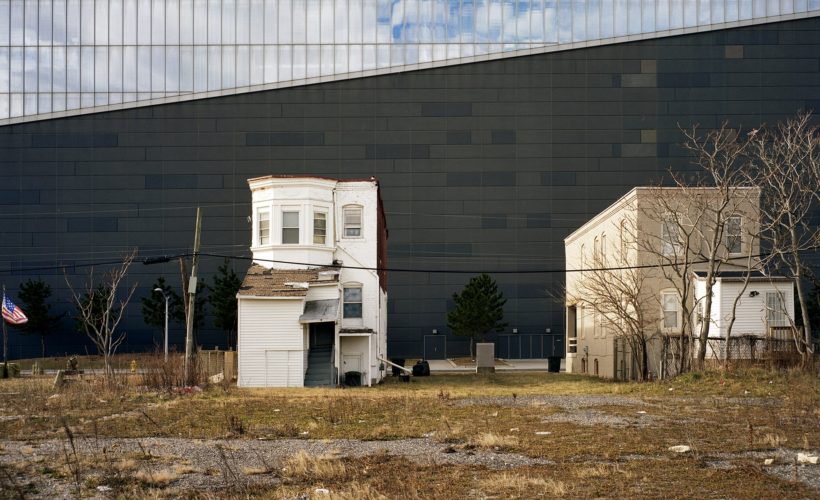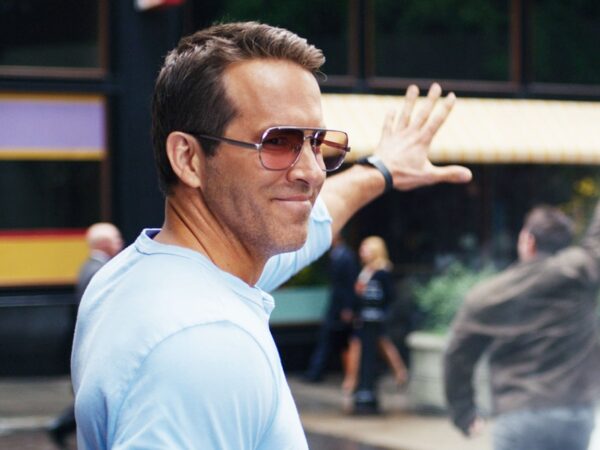Like many people, photographer and New York City resident Brian Rose was blindsided by Donald Trump’s victory in the 2016 presidential election. “I was very upset,” he says. “I thought we had made all this progress under President Obama, and now this happened. And I felt pretty helpless to do anything.” But rather than ranting on social media, Rose channeled his frustration into a new photography project.
“It occurred to me in a flash that just a couple hours down the road from me was Atlantic City, which is kind of the poster child of Trump’s business failures,” he says. Beginning in the early 1980s, Trump opened a series of casino resorts in the New Jersey seaside town; at their peak, the casinos employed over 8,000 people and accounted for about a third of Atlantic City’s gambling revenue. Rose himself stayed at the Trump Plaza in 1984 while helping a friend sell posters at a trade show.
“Trump was new, and it was a flashy hotel,” he says. “It was a time when there was a lot of hope that these casinos would revitalize the city. And for a number of years there was this glamour attached to them. But even then you would walk a couple blocks away from the boardwalk and the city was in pretty bad shape.”
The collapse of Trump’s casino empire was as dramatic, if not quite as rapid, as its rise. Burdened by high-interest debt, disappointing revenue, and over-expansion—by the early ’90s Atlantic City boasted the Trump Plaza, Trump Castle, and Trump Taj Mahal—the casinos started going bankrupt. Although Trump boasts that he kept squeezing money out of the casinos until the end, thousands of people lost their jobs and dozens of contractors were forced to accept a fraction of what they were owed. Today, the Trump Plaza is closed, the Trump Marina Hotel is now the Golden Nugget, and the Trump Taj Mahal (the last property with the president’s name on it) is under new ownership.
When Rose arrived in Atlantic City in November 2016, the glamour he remembered from the ’80s had nearly all faded. “It was a warm day, but there weren’t many people around,” he says. “It was almost like a ghost city. Yes, it gets more crowded in the summer because people come for the beach, but for most of the year it’s a pretty desolate place.”
Like Detroit, Atlantic City has been hollowed out by decades of population loss. From a high of 66,000 people in the 1930s, the city now has fewer than 40,000 full-time residents and a cityscape marred by empty lots and abandoned buildings, including not a few derelict casinos like the Trump Plaza. Rose’s photographs reveal the bizarre juxtapositions that now characterize the city—a weed-choked cemetery in front of a shiny glass casino, trash-strewn sand dunes piled up outside a strip club, a seedy motel across the street from a stately old church. The photos are collected in a new book published by Circa Press, with a foreword by Pulitzer Prize-winning architecture critic Paul Goldberger. Each of the photos is accompanied by a relevant text, including 16 of Trump’s tweets.
For Rose, Atlantic City is an almost-too-perfect metaphor for Trump’s zero-sum, winner-take-all philosophy. “He left the city desolate, with high unemployment, high vacancies. You look at Atlantic City and you see, in a very graphic way, the result of Donald Trump’s business model and his way of doing things.” The photographer also considers Atlantic City emblematic of the country as a whole.
“There’s this myth that if you work hard you’ll get ahead in America, and I think there’s a lot of disillusionment about that right now,” the photographer says. “Atlantic City is a place where maybe you can take a shot at getting rich through gambling. You know that you’re going to lose, that the game is rigged, but there’s always the possibility.”
Many pundits attribute Trump’s surprise election to that same mood of disillusionment—if the game is rigged, Trump voters seem to have thought, why not take a chance on a reality television star as president? (The outcome of that particular gamble is, of course, open for debate.) Then again, the house doesn’t always win. During Rose’s stay at Trump Plaza in the 1980s he decided to hit the slot machines—his first and last experience with gambling. To his amazement, he hit the jackpot.
“Now I tell people that I actually won $400 from Donald Trump,” he says.
More Great WIRED Stories
- How does music affect your brain? Every imaginable way
- Facebook is not a monopoly, but it should be broken up
- Why it’s so hard to restart Venezuela’s power grid
- Cracking the devilish aerodynamics of flying cars
- China is catching up to the US in AI research—fast
- ? Looking for the latest gadgets? Check out our latest buying guides and best deals all year round
- ? Hungry for even more deep dives on your next favorite topic? Sign up for the Backchannel newsletter
Source:WIRED










